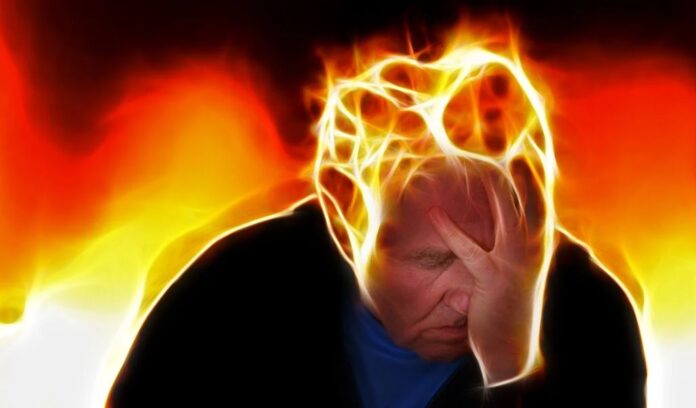Heat stroke is also a dangerous possibility, but if you identify the signs and know how to react and what to do, then you don’t have to worry about it.
What is a Heat Stroke?
Heat stroke not only refers to your temperature rising, but when you suffer it you can experience all kinds of internal damage, which can cause many more problems.
Heat stroke occurs when your body temperature rises rapidly and you are unable to cool down. It can be life-threatening by causing damage to the brain and other vital organs. It can be caused by strenuous activity in the heat or by being in a hot place for too long.”
What happens with this is that it can happen at any time and even if you are completely healthy and you are young, and it can cause death, for this reason it is recommended to try to moderate the time spent outdoors, especially in the hours where the temperatures are higher and the sun is stronger.
It’s more common than you think and can happen without you noticing (which is why you shouldn’t leave kids or pets in cars out in the sun).
The Symptoms of Heat Stroke Identified
- Fever of 104 degrees Fahrenheit (40 degrees Celsius) or higher
- Changes in mental status or behavior, such as confusion, agitation, and slurred speech
- Hot, dry skin or profuse sweating
- nausea and vomiting
- reddened skin
- rapid pulse
- Fast breathing
- Headache
- Fainting
- Seizure
- Eat
How to Treat a Heat Stroke?
To prevent Heat stroke from becoming lethal (it is especially dangerous for children and the elderly), it is important to act quickly, trying to cool the person down and lower the temperature.
The Clinic has these recommendations for treating heat stroke:
- Place ice in the neck area, armpits and groin
- Drinking drinks with a salt content, such as sports drinks or salt water
- Lie down in a shady area where the air flows
- If possible, soak in cold water
- Spray water on the body and blow air to evaporate, helping to cool
- Monitor breathing and remove anything that may block it
- Remove clothing, especially if it is tight or heavy
The clinic also says that it is important to avoid giving medication without first consulting a doctor, as this can make the situation worse. In extreme cases, you have to call an ambulance or take the person to the hospital, where they can give you better treatment and better monitoring of your vital signs.



















![10 Countries With the Best Healthcare in the World [Statistical Analysis] Countries With the Best Healthcare in the World](https://articleify.com/wp-content/uploads/2025/07/Countries-With-the-Best-Healthcare-in-the-World-1-150x150.jpg)









